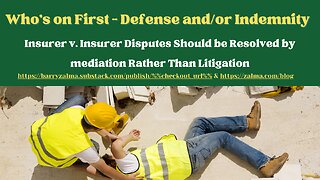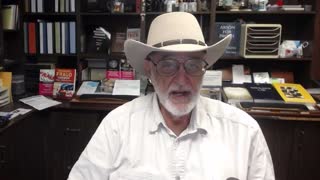A Video Explaining the Statutes of Repose
The Importance of Statutes of Repose
Generally, in California and many other states, a lawsuit alleging a latent construction defect must be brought within three or four years (depending on the theory of recovery) after the plaintiff discovers, or should have discovered, the defect. The California Legislature capped the open-ended nature of this “discovery” rule when it enacted Code of Civil Procedure Section 337.15, a statute of repose that “established a further general rule that no action for latent construction defects may be commenced more than 10 years after ‘substantial completion’ of the construction project. This ‘absolute’ 10-year limitations period applies regardless of when the defect was discovered.
A statute of repose for actions arising out of improvements to real property differs from a statute of limitations in that the repose period starts to run on the date of the substantial completion of the improvement, while the limitations period starts to run on the date of a plaintiff's injury.
The district’s claim was for damages not subject to the statute of repose and the trial court’s granting of the county’s motion was reversed since there were allegations that could be used to prove a cause of action in favor of the district. The San Diego opinion teaches that the nature of the right sued upon or the principal purpose of the action, rather than the form of action or the relief demanded, determines the applicable statute of limitations or whether a statute of repose applies. In the construction defect context, the opinion should remind those involved with improvements to real property that the mere fact that a damage claim involves, in some way, a construction project does not automatically mean the 10-year absolute statute of repose applies. Other causes of action, not related to construction defects, may allow a plaintiff to recover. The absolute statute of repose is not, therefore, absolute.
-
 10:17
10:17
Barry Zalma, Inc. on Insurance Law
3 months agoWho's on First - Defense and/or Indemnity
86 -
 16:42
16:42
Barry Zalma, Inc. on Insurance Law
3 years agoA Video Explaining Casualty Insurance
68 -
 21:18
21:18
Barry Zalma, Inc. on Insurance Law
3 years agoA Video Explaining The Fortuity Doctrine
27 -
 16:33
16:33
Barry Zalma, Inc. on Insurance Law
3 years agoA Video Explaining the Unethical Insured
15 -
 18:20
18:20
Barry Zalma, Inc. on Insurance Law
3 years agoA Video Explaining the Controls on Punitive Damages
67 -
 16:17
16:17
Barry Zalma, Inc. on Insurance Law
3 years agoA Video Explaining the Concurrent Cause Doctrine
38 -
 15:24
15:24
Barry Zalma, Inc. on Insurance Law
3 years agoA Video Explaining the Claims Made CGL
51 -
 16:30
16:30
Barry Zalma, Inc. on Insurance Law
3 years agoA Video Explaining the Insurer's Right of Subrogation
20 -
 17:29
17:29
Barry Zalma, Inc. on Insurance Law
3 years agoA Video Explaining the Nature of Insurance Underwriting
33 -
 15:19
15:19
Barry Zalma, Inc. on Insurance Law
3 years agoA Video Explaining the Need for Construction Experts
36